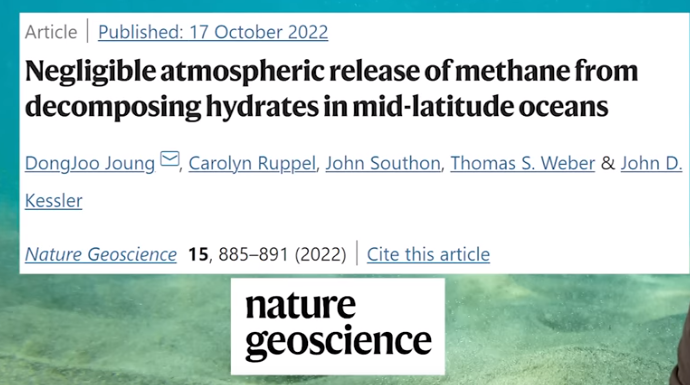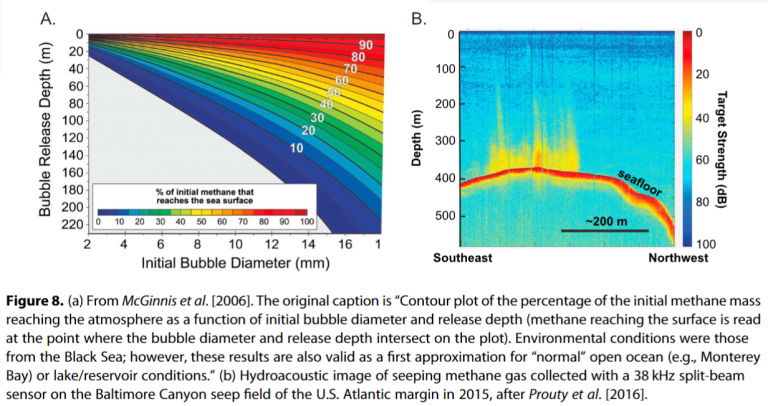By P Gosselin on 9. August 2023
Hat-tip: EIKE here.
Global warming alarmists have often used the scenario of increased methane in the atmosphere accelerating warming and climatic change.
But a recent study appearing in Nature, Negligible atmospheric release of methane from decomposing hydrates in mid-latitude oceans, dumps a lot cold water on this scenario. This is good news, which unfortunately the media refused to report.
At the bottom of the sea, there are large deposits of naturally occurring methane hydrate. There’s a fear that these ice-like deposits could melt and be released into the atmosphere if the oceans warmed. Methane is a far more powerful greenhouse gas than CO2. The researchers looked at the concentration and natural radiocarbon content of methane dissolved in the water column from the seafloor to the sea surface at seep fields along the US Atlantic and Pacific margins.
No methane reached the surface
Their measurements revealed no evidence of seep CH4 reaching surface waters when the water-column depth is greater than 430 ± 90 m. “Gas hydrates exist only at water depths greater than ~550 m in this region, suggesting that the source of methane escaping to the atmosphere is not from hydrate decomposition,” the authors add.
Dissolves in the ocean
In 2016, a paper published in the Reviews of Geophysics concluded that the annual emissions of methane to the ocean from degrading gas hydrates are far smaller than greenhouse gas emissions to the atmosphere from human activities and that most of the methane released by gas hydrates never even reaches the atmosphere. The methane often remains in the undersea sediments, dissolves in the ocean, or is converted to carbon dioxide by microbes.
Oceans retain virtually all the methane
The authors explain how methane sinks are increasingly incorporated into numerical models of climate-hydrate-interactions as knowledge becomes better established.
“Models are beginning to acknowledge that most CH4 bubbles emitted at the seafloor at water depths deeper than a few tens of meters will retain little or no methane by the time they reach the near-surface mixed layer, meaning that the primary repository of methane liberated by gas hydrate dissociation within any deepwater marine reservoir will be the ocean, not the atmosphere [e.g.,Biastoch et al., 2011],” the authors summarized.
Image source: Reviews of Geophysics





